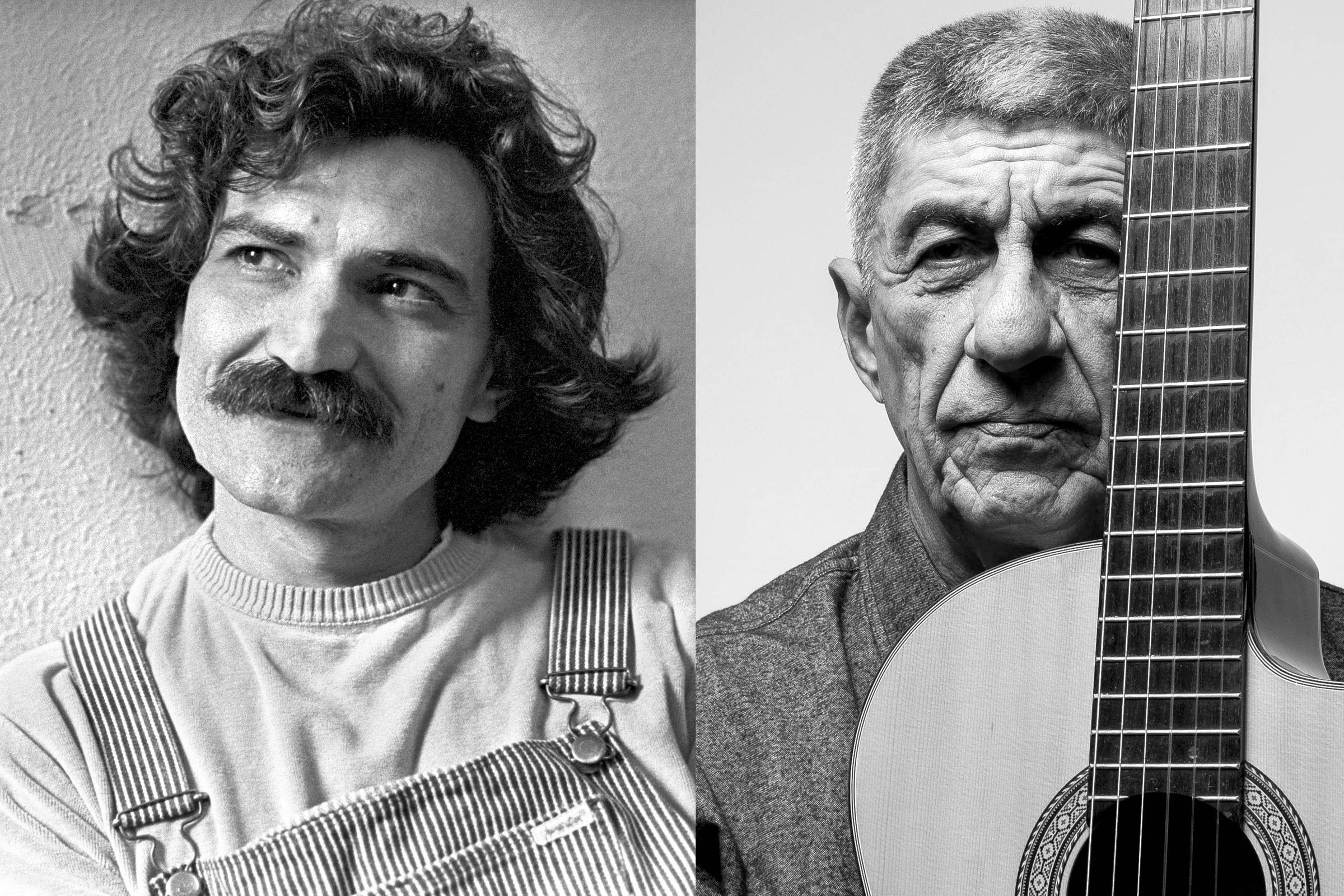Raimundo Fagner and Belchior were still 20 years old when they wrote “Mucuripe” together, recorded by Roberto Carlos in 1975, when the song in the voice of the King was a letter of entry into the MPB first team. They also fought a lot throughout their lives. “Really, a fistfight,” Fagner once described. Thus, in the album “Meu Parceiro Belchior”, which the singer releases this Friday, when he turns 73, there is a lot of history on Universal Music.
The people of Ceara keep memories of every song. Of the 12 tracks, eight represent Fagner’s partnership with Belchior, who died in 2017 and was one of the members of the group that became known as Pessoas do Ceará, which also included names such as Amelinha and Ednardo. Six have already been recorded by artists such as Alice Regina and Wilson Simonal. The other two, “Posto em Sossego” and “Alazão”, have not yet been published.
Surprisingly, eight songs cover the entire work of the duet. The number, modest for a partnership started in the early 1970s, is a testament to the troubled relationship they had.
“He came looking for me [para uma reaproximação], but I, stoned, did not go. I wish we made more music. Disappointment remains. His children said they would send me his poems, which I would like to set to music. I really want to do it,” says Fagner, who insists on emphasizing that despite conflicts, his admiration for Belchior has never wavered.
The admiration goes back to when Fagner first saw him in 1968 at a festival they both participated in in Fortaleza. “I ended up winning, but my favorite song was his song. I was delighted. In fact, I had to record this song “Espacial” on this album. I’ll have to record the second volume,” he laughs. .
The disc highlights the unreleased “Posto em Sossego”, which, like “Alazão”, was discovered in the censorship archives by researchers Renato Vieira and Marcelo Froes. Another gem is the rare “Bolero em Português”, which the duo wrote for Angela Maria, but the singer never recorded. So far this song has had only one recording, made by Claudia Versiani in 1978.
“Meu Parceiro Belchior” is a project by Robertinho do Recife, who is responsible for the production and arrangement. Honor includes guests. Amelina, a witness and participant in the beginning of the story of Belchior and Fagner, sings in Bolero in Portuguese. Frége’s duets with Fagner in “Contramão”. “I recorded this song with Kazuza in 1985,” recalls the Ceara native. “Singing it with Frejat, Kazuza’s partner and friend, was a natural choice. It was very emotional. We did it in person, in the studio.”
The idea of his compatriot Xand Avião’s participation in “Noves Fora”, which is a mixture of modern forro and samba rock, came about when they met at a concert. Fagner says he doesn’t follow the current Brazilian music scene very closely, but mentions an artist who caught his attention. “From what I had a chance to hear, it was Zhao that caught my attention,” says the singer, who laments the change in the phonographic market, which is now focused on streaming. “I still record to watch vinyl. I don’t care about changes. My head is from the past.”
The record also features Belchior’s unmistakable singing. A voice from his 1976 recording of “A Palo Seco” was used to create a duet with Fagner. This is one of four tracks that Belchior does not sign with Fagner. Others are “Paralelas” (live, taken from the same show from which the recording of “Mucuripe” was played on the record), “Na Hora do Almoço” (winner of the University Festival of Brazilian Music, 1971, a landmark arrival of the Ceará people) and “Roosters , nights and courtyards.
Fagner says he wanted other contestants who ultimately didn’t make it, like Ze Ramalho and Ivan Lins, and surprises him by citing a history of discontent. “My dream was one day to sing with Cayetano Veloso, if he agrees, so that we turn this story around. He was the artist that we were thinking about bringing on the record. offensive to him.”
Fagner attributes to a certain lack of skill the disagreements that have accumulated throughout his life. He remembers that, like Belchior, he always had a critical eye, but his partner was “more prepared”. “He left it to poetry. I went to another field. He was well prepared for this poetic confrontation, for this critical dialogue. I became lion flesh. I opened my mouth, there was a blow.
Belchior has been revived in recent years in several rewrites and quotations, among which the most memorable is Emicide, in The Yellow, which takes verses from The Object of Fortune. This is largely due to the fact that his work was embraced by the political fervor of contemporary Brazil.
Fagner also highlights a “political streak” in his new album. “In our history, mine and Belchior’s, there has always been this. I don’t think that the artist should necessarily be involved. Whoever wants, he goes. I have always been too. With us to fight, we will definitely bring this political seal.”
The artist, however, avoids announcing his vote for the president in this election. “I voted for Bolsonaro in 2018. Now the fake news is portraying it as if I voted for him in this election. I already voted for Lulu, I was with Fernando Enrique, Itamar, Mario Covas, Dilma, Esio. but right now I have to stay alone and see what the Brazilian people decide so that from now on we can live better.”
Despite reservations, he has a positive view of Jair Bolsonaro’s administration. “I think he has very good things, but he sins a lot when he says this. We do not believe any of them. Because of this, he must regret it, I even saw him talk about it. the government itself, in the economic question, it is doing well.”















